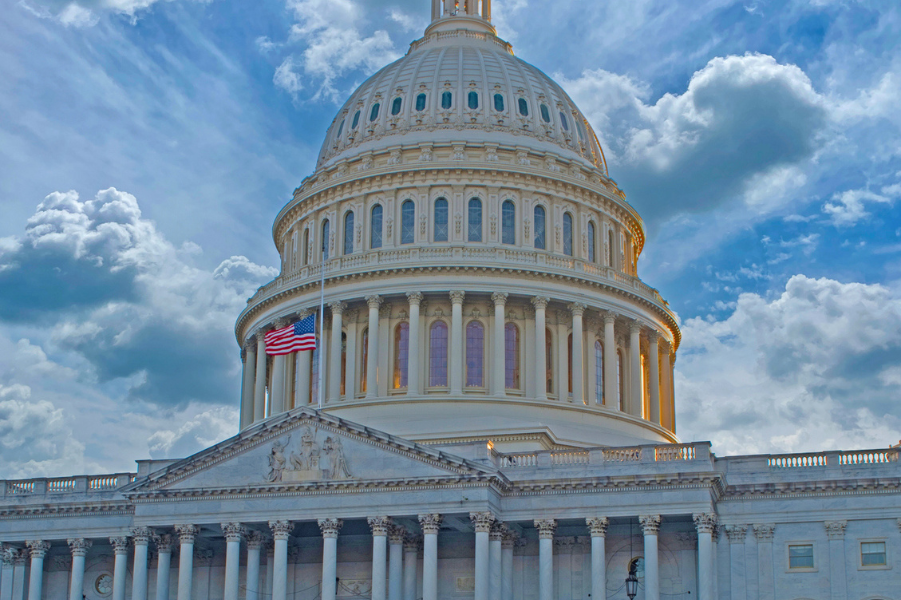Under President Biden’s student loan forgiveness program, borrowers can qualify for up to $10,000 in loan cancellation ($20,000 if they received Pell Grants) if their income is within the program’s requirements. While student loan borrowers celebrated the news, opponents warned that the program would significantly affect the economy, particularly with inflation.
Opponents ask, “Would canceling student debt cause inflation?” However, there isn’t a clear-cut answer. Economists and politicians from both political parties have very different opinions.
Would Canceling Student Debt Cause Inflation?
There are different viewpoints from advocates on both sides of the political aisle concerning the connection between student loan forgiveness and inflation. When attempting to understand the connection between student loan forgiveness and inflation, it’s helpful to learn about side’s views:
What Critics Say
The Committee for a Responsible Federal Budget (CRFB) is a non-profit, non-partisan organization focused on federal fiscal policies. The CRFB has issued a series of reports and statements criticizing President Biden’s student loan forgiveness program.
According to the CRFB, the program will cost between $400 million and $600 million. It also claimed that widespread loan forgiveness would undermine the progress made by the Inflation Reduction Act, a measure that went into effect in August 2022 to curb rising inflation.
U.S. Senate Republican Leader Mitch McConnell also criticized the measure, tweeting that the loan forgiveness measure was an “unfair distribution of wealth.”
What Supporters Say
Although there are critics of the loan forgiveness program, it also has its supporters.
The Roosevelt Institute, a non-profit organization and think tank says the CRFB’s analysis is flawed, and its deficit analysis isn’t an apples-to-apples comparison. Instead, the CRFB used budgeting conventions normally applied to credit programs, leading to distorted conclusions.
However, the Roosevelt Institute said that even if you used the CRFB’s analysis as it is, the resulting inflation from student loan cancellation would be quite small. And because federal student loan payments will resume in January and will likely reduce inflation, the negative impact would be offset.
The Center for American Progress said any impact on inflation from student loan forgiveness would be marginal, and loan forgiveness would help households afford the cost of living and pay down other debt.
The Connection Between Student Loan Forgiveness and Inflation
What impact student loan forgiveness will have on inflation has yet to be seen. However, there could be the following outcomes:
It Could Give Borrowers More Spending Money
Although federal student loan payments have been paused since March 2020, payments are set to resume in January 2023. According to the Federal Reserve, the typical monthly payment is between $200 and $299 per month.
The Center for American Progress said Biden’s loan forgiveness program would eliminate the debt of one-third of federal loan borrowers. Without their student loan debt, those borrowers would have $200 to $299 per month to put toward other goals, such as saving for a home or investing for retirement.
Tuition Rates Could Continue to Rise
One of the biggest criticisms behind the loan forgiveness program is that it doesn’t do anything to address rising tuition costs. According to a 2021 report from Georgetown University’s Center on Education and Workforce, the average price tag for a college education — including tuition, fees, and room and board — has increased 169% since 1980, outpacing the price increase of other consumer goods.
One-time loan forgiveness relieves current borrowers but doesn’t curb tuition rates or reduce the need for debt for future students.
Borrowers Can Pay Off Other Debt
With $10,000 to $20,000 of loan forgiveness, existing student loan borrowers will have more room in their budgets. The Center for American Progress said many borrowers will use their savings to pay off other forms of debt, such as high-interest credit cards or auto loans.
It May Affect Employment
There are some concerns that the loan forgiveness program will worsen labor shortages. Student loan debt causes some workers to stay in jobs they don’t like or to take lower-paying positions instead of pursuing their dream job.
The loan forgiveness program could free up some workers to change careers or start their own businesses. This could lead to increased entrepreneurship and creativity, but it could also worsen labor shortages in certain industries.
Looking Ahead
As economists and politicians debate the merits and drawbacks of President Biden’s loan forgiveness program, there is a bigger issue: A federal appeals court temporarily blocked the plan and prevented any loans from being discharged.
Until the appeals court makes a decision, loans cannot be discharged. The Biden administration encouraged borrowers to submit applications. It will continue to review applications, and if the court block ends, it can process loan discharges.
You can fill out and submit your application through Federal Student Aid. You can also sign up for email updates from the U.S. Department of Education to receive notices of changes to the program and other student loan measures.



